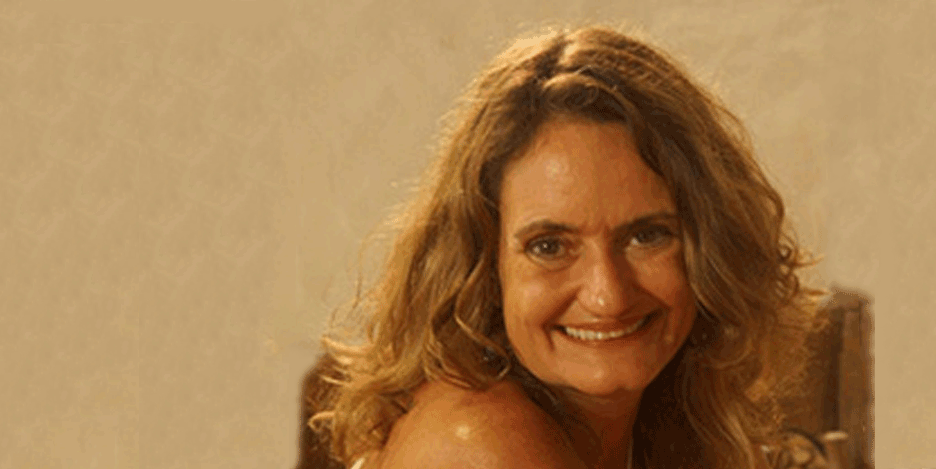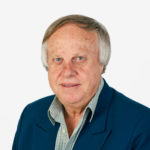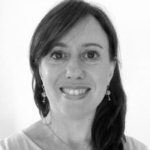M. Carolina Tuma, PhD, Health Coach, mother. Naturally curious, people lover, passionate about learning, teaching and doing research. Lecturer on Integrative Health and Wellness at the Albert Einstein Hospital in São Paulo, Brazil. She is also a speaker and a meditation facilitator.
You can learn more about Carolina and read her blog here.
1. You started your own health coaching business after spending more than 10 years researching and developing new cancer treatments. What can you tell us about your decision to become an entrepreneur and what it was like making the transition?
In 2014, two trips helped my metamorphosis. Both I took on my own. Exploring the Atacama desert and the Uyuni Salt Flats in Chile and Bolivia and walking 250km in 12 days, on a pilgrimage from Portugal to Spain. After meditating in movement and meeting all sorts of interesting people, I came back a new person who no longer was a fit in corporate drug development. As Director of Research & Development at a biotech company I used to work long hours, and during that year, I took on graduate courses in Integrative Health and Health Coaching. To handle everything, I traded a social life for books, traffic stress for walking and lost some 18 pounds. By the end of the year something had to give: the job fell off my plate and I braved self-employment and entrepreneurship. I realized that working on my own would allow me to work with health instead of disease, to align my competences to purpose and flavor life with a new meaning.
To get my Health Coaching business off the ground, I had to invest in networking in a new field, improve my time-management, and lift the perfectionism that was in the way of the self-driven me. Today I work in three areas: coaching people for self-care, teaching Integrative Health and engaging in scientific research. I help clients to think about their health and I help physicians and health professionals to think scientifically – how to identify a question, define a strategy, write a project, and publish a paper. In fact, I am currently working on some papers to be published by my students. Being able to continue studying and investigating while helping people has been a thrill.
2. What does it mean to be a health coach? What are some of the biggest challenges you face working with clients in this capacity?
Medicine as we know it today is a fast-paced profession that relies greatly on exams and prescriptions, maybe more than on understanding the human being inside the body that needs care. As a Health Coach I challenge my clients to look at their own health in key aspects and find out what they can do to improve it. My work starts by guiding people to reconnect with their own values and mission, so that lifestyle changes will be tied to purpose and meaning. Then we move forward to identify areas of focus and strategies for change, set goals, and before you know it, a new person unfolds. Just like I did in 2014. Many times, the results are so astonishing that medications for chronic conditions such as diabetes, high blood pressure or depression are reduced or no longer needed. Major weight loss has literally reformatted people. Creative transformations have impacted not only physical health but also work and relationships. The beauty of the process is that the client takes home the lessons learned and goes on to live with much more autonomy and self-efficacy. This is powerful!
Supporting folks to make transformational changes that improve their health and wellbeing gives me great gratification, but it can be challenging too. While one might be rationally ready for change, often there are obstacles to be overcome, and most of these are internal. Roadblocks include not seeing the issue, resisting to drop self-judgement, being ambivalent, learning that acceptance is different than conformism, realizing that each step matters on the way to the final goal. Practicing a mindful and non-judgmental presence, listening attentively and being genuinely curious have helped me to surpass barriers hand-in-hand with my clients, clearing the road for startling new opportunities.
3. You also work as a meditation facilitator. Can you tell us a little bit about what that means and how meditation can impact a person’s daily life and health?
I started meditating in 2012, and today I wonder how I managed to live for so long without it. Meditation is a specific and self-induced technique, which uses focus promoting strategies to foster muscle relaxation and relaxation of logic. It is a practice that impacts people at different levels, from physical well-being (short-term) to changes in behavior and self-conscienceness (long-term) that result in higher connection – to self, to others, to the universe. It makes sense, as evidence shows that the daily practice of meditation changes the brain over time, impacting how neural connections are established, prioritized and maintained – processes involved in neuroplasticity. Simply said, meditation can be considered a tool that trains the brain to function in a healthier way.
As a meditation facilitator I organize workshops that combine theory and practice. I start with the key meditation concepts, talk about its origins and types, then dive into practices. Trained by a physician professor at a major medical school, I focus on the health benefits of the practice. Improvement in immune function – our defense system, and in cardiovascular and metabolic diseases, significant reduction in pain, decreased symptoms of anxiety and chronic stress, better sleep and more self-efficacy are all benefits of meditation. With solid evidence supporting it, meditation programs are broadly used in hospitals, clinics, schools and corporations.
One way to see it is that the mindful presence we acquire with meditation changes the quality of our reaction to life, so that in the face of adversity we respond with serenity instead of despair or anger. For me, it is a path towards more peace, and therefore a necessity for a more livable society.
Bold



